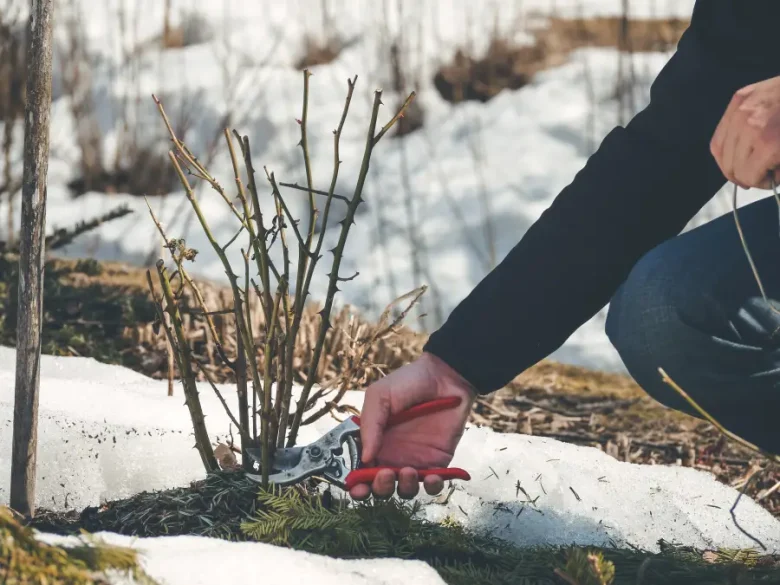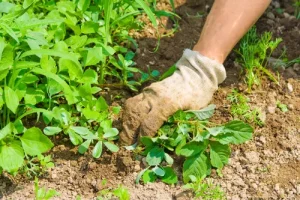Your green fingers don’t have to hibernate in the winter. In winter, using sustainable gardening techniques not only adds color to your garden, but is also good for the environment. Here are some professional tips and ways to keep your garden healthy even after the first frost:
1. Compost Feed Heat:
Nutrient-rich compost can be made from kitchen scraps, fallen leaves and other organic waste. In addition to reducing landfill waste, compost also generates heat as it decomposes, keeping the soil warm in winter. To ensure a continued supply of organic matter for your plants, turn your compost pile regularly to promote aeration and speed up the decomposition process.
2. Choose Cold-tolerant Plants:
Choose plant varieties that can withstand harsh winters and frost. Look for perennial flowers, such as pansies and ornamental grasses, that can tolerate cold temperatures, and hardy vegetables, such as kale, Brussels sprouts and winter squash. To extend the season and add variety to your winter garden, plant a variety of hardy crops.
3. Protect your Soil:
To maintain soil moisture and prevent erosion, spread a layer of straw, leaves or bark chips over your garden bed. Mulch also helps retain moisture, suppress weeds and create a habitat for beneficial organisms during the winter. To protect your plant’s roots from freezing temperatures and unstable weather, cover your plant’s roots well.
4. Extend your Growing Season:
Invest in season-extending equipment such as hoop houses, cooling frames and row covers to create a microclimate and protect your plants from the elements. Because these structures retain heat and protect delicate crops, you can continue to gather fresh produce during the winter months. To maintain ideal growing conditions under a protective cover, pay close attention to temperature fluctuations and make necessary ventilation adjustments.
5. Save Water:
Because plants require less water during the dormant period, consider how much water you use during the colder months. To deliver water to the roots efficiently and without waste, you can use a drip irrigation system or collect rainwater in buckets. Additionally, consider using recycled water from household chores such as washing dishes to feed your garden. Watering your plants earlier in the day gives the excess water time to drain before the lowest point of the night.
6. Protect Wildlife
Providing a friendly environment for wildlife, birds and other beneficial insects is important for pollination and pest control. Add native plants, bird feeders and insect motels to your garden to promote biodiversity and a balanced ecology all year round. By providing wildlife with food, water and shelter, you increase the resilience and sustainability of the ecosystem in your garden.
7. Use Biological Pest Control Techniques:
Avoid using chemical herbicides and pesticides as these can eliminate beneficial insects and disrupt the balance of the ecosystem. To properly control garden pests, use natural pest control techniques instead, such as companion planting, hand-picking insects and introducing predatory insects. Check your plants regularly for signs of pests and act quickly to resolve any problems with environmentally friendly pest control techniques.
8. Accept the Beauty of the Seasons:
Your winter garden will look more attractive if it contains elements such as vibrant berries, evergreens and ornamental branches. Sculpture ornaments, textured plantings and imaginative lighting settings can all be used to create a striking outdoor space – even in the depths of winter. Experiment with different colours, materials and shapes to create a pleasant winter garden that you can enjoy all year round.
Conclusion
During the winter, you can use sustainable gardening techniques to care for the soil and your plants. Check out these methods and ideas to create a healthy, year-round garden that reduces your impact on the environment and increases your appreciation for nature’s beauty. With a little imagination and attention, your winter garden can become a colorful paradise full of life and color during the colder months.
FAQs
1. What is sustainable gardening?
The objectives of sustainable gardening are to establish and protect garden ecosystems, reduce their negative impact on the environment, conserve resources and promote biodiversity. To create resilient and healthy gardens, it details recycling resources, using organic farming methods and supporting regional ecosystems.
2. Why is sustainable winter gardening so important?
During winter, sustainable gardening supports biodiversity, conserves resources and maintains ecological balance. Gardeners can reduce waste, reduce energy consumption and provide habitat for wildlife even in colder climates by implementing environmentally friendly practices.
3. How do you keep your garden soil healthy during the winter?
Keep the soil in your garden healthy all winter long by mulching the beds to retain moisture, insulate the soil and prevent erosion. To reduce compaction, avoid walking on wet soil and add compost to restore nutrients and strengthen soil structure. To protect and improve the soil during hibernation, consider planting a ground cover.
4. What plants can I grow to survive the winter?
You can plant a variety of hardy plants, such as perennial flowers such as hellebores, winter jasmine and snowdrops, and hardy vegetables such as kale, spinach and carrots. Look for varieties that thrive in your climate and provide color and nutrients all winter long.
5. How do I protect my plants against cold and frost?
Use techniques that extend the growing season, such as cold frames, row covers or hoop houses, to create microclimates that retain heat and protect plants from harsh weather conditions. During cold nights, cover vulnerable plants with a blanket or cloth and cover the base of the plant to protect the roots.
6. What natural pest control techniques are available for winter gardening?
For winter gardening, natural pest control techniques include companion planting, hand-picking pests, introducing predatory insects and using organic pest control products such as garlic spray or neem oil. By maintaining a diverse plant life in your garden and providing beneficial insects a home, you can control pests organically.



